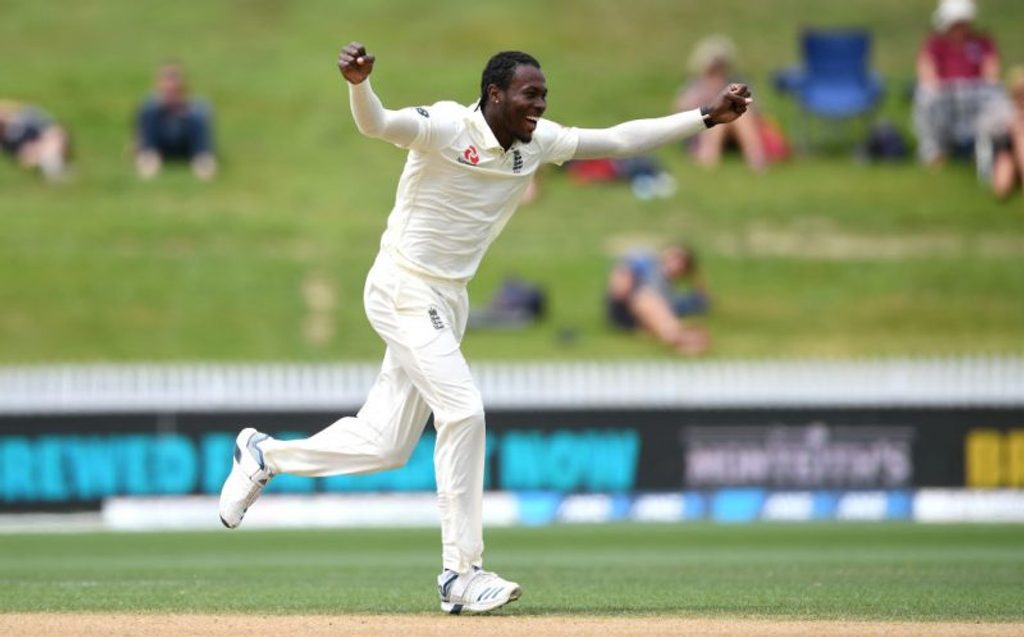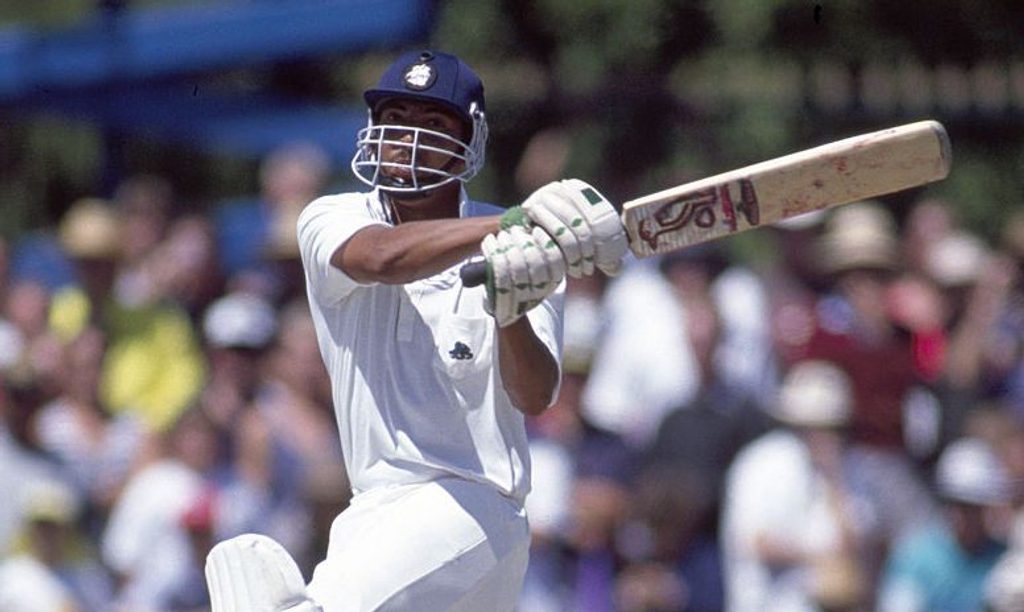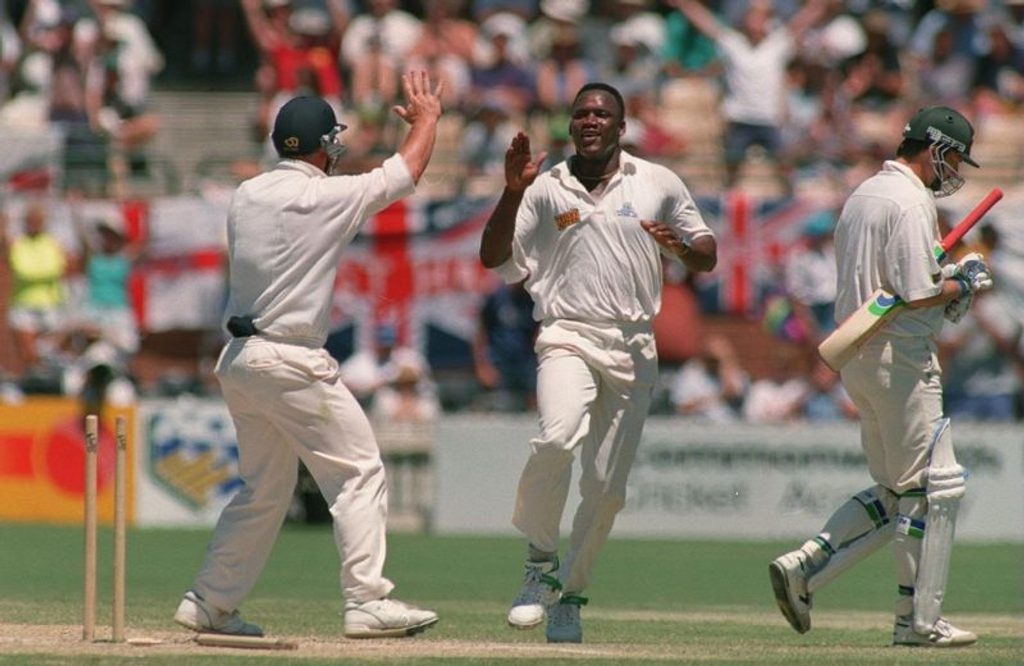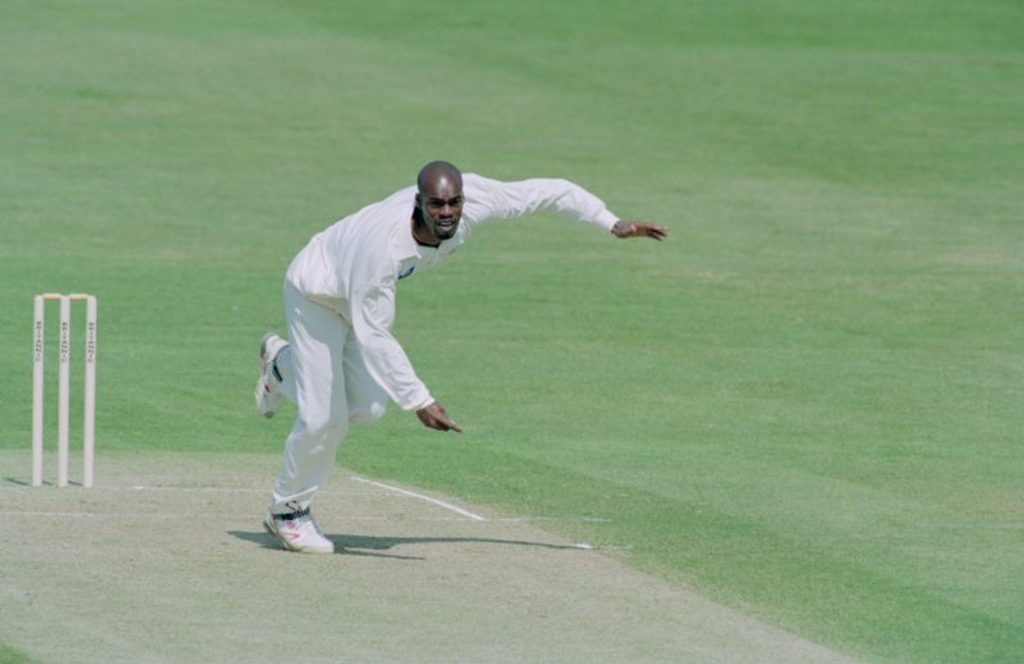
In 1993, there were more than 30 players of West Indian descent in county cricket, but nearly three decades later, the Caribbean presence in the English game is vastly diminished. Robert Winder explains what has caused the well to run dry.
Robert Winder is the author of The Little Wonder: the Remarkable History of Wisden, and Bloody Foreigners: The Story of Immigration to Britain.
The unjust treatment of the Windrush generation was one of the stories of 2018. And if the term itself was loose, most people knew it referred to the Caribbean migrants who came to Britain in the 1950s and ’60s, in the wake of the original Windrush pioneers of 1948. They had worked, married, brought up families and grown old in the so-called mother country. Now, they found themselves on the wrong end of a hostile atmosphere, whipped up by panicky modern politics. Some had actually been deported back to the homes they had left behind.
It was a clear scandal. The early travellers encountered racism at every turn, whether they were looking for a house, a job, a drink or just a chat. For that cold tone to be echoed now, in official government policy, was a shock.
This is not the place to debate whether the episode was an assault on human liberty or merely a bureaucratic bungle (it has been said that one should not ascribe to malevolence what can be put down to stupidity). According to the historian and documentary maker David Olusoga, it was both. It was, he says, an “unexploded bomb” left by clumsy legislative initiatives in the 1960s and ’70s; but it was also shaped by lingering racial animosity. “Britain in those years accepted thousands of displaced people,” said Olusoga, “but panicked at the thought of migrants from the West Indies.”
Mike Phillips, who with his brother Trevor, wrote Windrush: The Irresistible Rise of Multi-Racial Britain, agreed it was a dismaying shock, but believed the offspring of the Windrush generation were now too integrated to feel badly threatened. “When they go to the Caribbean, they stand out as obviously British,” he said. “They saw it as wrong, obviously – but not enough to make them fear for their grandparents.”
This may not have been a cricketing matter, but it did bring to mind an absence in the English game: the loss of its rich West Indian thread. It was almost as if, having failed to give England its own Sobers or Richards, a whole society was being sent home. Since 2005, only two men of Caribbean descent – Michael Carberry and Chris Jordan – have played Test cricket for England. Jofra Archer, the Barbados-born fast bowler with an English father and British passport, may soon become the third.* The team that took the field at Adelaide ten years earlier included three alone. Phillip DeFreitas struck an exhilarating second-innings 88. Devon Malcolm bowled with stomach-lurching power to remove Mark Taylor, Michael Slater and Steve Waugh. Chris Lewis knocked over the tail. (Also in the tour party was Joey Benjamin.)
 Barbadian-born Jofra Archer made his much-anticipated Test debut for England during the 2019 home Ashes series
Barbadian-born Jofra Archer made his much-anticipated Test debut for England during the 2019 home Ashes series
Many players with similar backgrounds had also represented England: Roland Butcher, Norman Cowans, Wilf Slack, Monte Lynch, Gladstone Small, Syd Lawrence, Mark Ramprakash. In 1993, there were more than 30 players of West Indian descent in county cricket: the children of the Windrush looked set to be a reliable nursery for the English game.
What happened? A decade later, the well seemed to have run dry. The audience had melted away, too. “There was hardly a Caribbean fan in sight to witness the capitulation of Brian Lara’s team,” wrote Wisden, after the West Indians’ lame showing in England in 2004. “Just a few mournful elders staring into their drinks.” The decline was put down to various things, starting with the weakening of West Indies cricket itself: as the Lloyd–Holding–Marshall– Richards era faded, so did the game’s grip. But it was also said that English stuffiness, and regulations designed to suppress noise in grounds (soon scuppered by the Barmy Army), had silenced the exuberant Caribbean voice. It was mooted that the Americanisation of sport in the region – the rise of basketball and athletics – was fraying the heritage of leather and willow. Even food habits were blamed, fish and vegetables supplanted by cheeseburgers and chips.
The biggest reason, though, lay not in the Caribbean, but in the texture of English life. The West Indians had settled in the run-down areas of England’s crowded inner cities: Brixton or Notting Hill in London, Handsworth in Birmingham, St Paul’s and Toxteth in Bristol and Liverpool. Chance played a role. The first Windrushians were billeted in the Clapham Shelter, a disused wartime hostel. The nearest Labour Exchange was in Brixton, so that is where they went, and where they stayed.
The consequences were inevitable. The West Indian migrants slowly became assimilated into the inner-city mainstream, which meant football, not cricket. Their arrival coincided with the disappearance of cricket pitches – so much easier to put down jumpers for goals and play football instead. A vibrant sporting stream was diverted, like the tributary of a river, into a new channel.
It took a while. The Nottingham-born Viv Anderson broke new ground in 1978, when he became the first black footballer to play for England, and was pelted with bananas for his pains. Times have changed, though there have been recent incidents, including a banana. A modern English cricket team may lack a West Indian accent, but the football World Cup squad in 2018 boasted eight players of Caribbean descent: Few raised an eyebrow.
For Phillips, this alteration coincided with the decline of cricket as a hub or rallying post. “It was so important, gathering at the cricket, watching West Indies. It was a social reference point. And we didn’t want to watch other teams. We wanted to see ourselves – or, in the case of Sobers and Worrell, brilliant versions of ourselves. They gave us dignity. Maybe we stopped needing that.”
Phillip DeFreitas recalls the Adelaide Test as one of the few times he felt able to bat for England with the zest of which he was capable. When the sixth second-innings wicket fell, they led by only 115. “I think we’d almost written off the chance of winning,” he recalls. “The feeling in the dressing-room was that only two results were possible – a defeat or a draw.”
His batting record was undistinguished: he finished with a Test average below 15 – not great for a man who would rack up nearly 11,000 first-class runs. But now he pummelled 22 off a single over from Craig McDermott to send flutters through the crowd, and the seagulls grazing at deep midwicket. In an era when run-a-ball batting was looked on much like the four-minute mile, DeFreitas went on to his highest Test score, a late flurry of boundaries shifting the mood of the match; England had set a worthwhile target, for once, and the game was afoot.
 Phillip DeFreitas unfurls a pull during his 95-ball 88 in the Adelaide Test of 1995
Phillip DeFreitas unfurls a pull during his 95-ball 88 in the Adelaide Test of 1995
DeFreitas had come a long way since arriving in Britain from Dominica at the age of seven. He retains little of that childhood, beyond an image of himself jumping into the sea on sunny mornings. There wasn’t much of that in Willesden, north-west London; he became a fidgety and uncertain schoolboy who found refuge in sport. He was a useful enough footballer to have trials with Luton Town, but his first love was cricket – and cricket loved him back. At the end of the day, he would go to Lord’s and hang around the indoor school, bowling at anyone who didn’t throw him out. He went on to win a place on the MCC groundstaff.
He does not recall playing in the Caribbean, but it was a fact of life in his family: “My father and my brother loved it, talked about it all the time – West Indies and England.” Willesden High had a cricket pitch, a length of astroturf laid on cement, and that is where DeFreitas started to play. He was a quick learner. Signed by Leicestershire in 1985, he took 3-3 on debut as Oxford University were bowled out for 24; the following year, he claimed 94 first-class wickets and scored a maiden century, against a Kent side including Graham Dilley, Terry Alderman and Derek Underwood. People noticed.
DeFreitas is useful to quizmasters – the only player to take a five-for against all 18 first-class counties, and one of a handful to have made 10,000 first-class runs and taken 1,000 wickets. He may also be the most dropped player ever – 14 times by England, he believes. “Someone came to me recently and pointed out that every time I took fewer than three wickets, I was dropped. I don’t know if that’s true – but it certainly felt like it.” The most hurtful occasion was in 1993. Recalled at short notice for the first Ashes Test at Old Trafford, he dismissed Slater and David Boon, and had Allan Border and Taylor dropped. After the match, he raced to play a four-day game at Essex, and was netting when he heard on the radio that he was not in the side for Lord’s.
“I was very upset,” he says. “No one ever said a word.” Lord’s was his spiritual home – part of his childhood, and the symbol of his success as a young boy making a fresh start in a new country. But he did not then, and does not now, suspect a racial motive lurked in this shoddy treatment. “I honestly never thought that. It’s true I played a lot of games for England without ever feeling part of the team. But that’s how selection was back then. You never felt safe.” The most severe racism he encountered came when he played club cricket in South Africa, for Boland. People saw only his colour, and treated him coldly, until they learned he was an English cricketer. The shift was frightening.
Devon Malcolm was born in 1963 in Kingston, Jamaica – the port from which the MV Empire Windrush set sail. The ship herself was a migrant: originally a German troop carrier, the Monte Rosa, she was seized in the Baltic in 1945, and renamed after a Cotswold river. His father followed what was fast becoming a Caribbean tradition, supporting the family from afar, in England.
Devon lost his mother when he was six, and was raised by his grandmother until he joined his father in Sheffield at 17.
He was a student rather than a talked-about cricketer. But back in Jamaica, he had tried, like everyone, to imitate the action of Michael Holding, and in one of his first matches, it seemed he had taken all ten wickets. “Yes,” he remembers. “The scorecard looked pretty good… but a lot of that was down to my cousin Danville at the other end. He was quick too.”
A few non-cricketing years went by before he joined Sheffield Caribbean CC. And he soon impressed everyone with his thunderbolts. One Friday, he skipped college to play for Yorkshire Schools, and was at once snapped up to represent a Yorkshire League XI against the county. In his first over, he bowled Martyn Moxon; in his second, he was too much for Geoff Boycott. The Yorkshire-born policy meant he had no chance in his adopted county, but the following Monday he was invited to trials at Derbyshire, whose overseas player was… Michael Holding. Who said life couldn’t be poetic? Before long, he was the fast-bowling answer to England’s prayers. Then, like DeFreitas, he was by turns picked and discarded. “That’s how it was. They changed bowlers at the drop of a hat. They were happy when you did well, but one bad session and you knew you might be out.”
Steve Waugh was one of many to express bewilderment when Malcolm was not selected – on the simple grounds that he was a match-winner. “We were amazed when his name wasn’t on the teamsheet,” he said. “Dev could bowl one ball that would go down the leg side for four wides, but the next would be a perfect outswinger at 100 miles an hour… and the next would be at your throat. That was hard.”
 Devon Malcolm celebrates with Mike Gatting after dismissing Steve Waugh during the 1995 Adelaide Test
Devon Malcolm celebrates with Mike Gatting after dismissing Steve Waugh during the 1995 Adelaide Test
Malcolm clearly recalls the final innings in Adelaide. “It was one of those days where it felt good from the start – the run-up, the ball coming out of the hand, a bit of movement. And I remember Slater. He hadn’t hooked all series, but I bowled a flimsy bouncer at Boon and he hooked it, and I saw Slater smile. And I thought: he might have a go. Next chance I got, I bowled him a proper bouncer, and he top-edged it.”
He yields to no one, however, in his admiration for the great West Indies teams of the past. “A lot of kids playing now, even in the Caribbean, don’t realise what West Indies cricket is, where it came from. I don’t care who you are, England, Australia, wherever – everyone was influenced by those teams and those players.” And he sees the decline as “mainly a generational thing”. Watching his own 12-year-old son progress through junior cricket in England, he is struck by how orderly and expensive it has become. “I used to just run around, copy my heroes, bowl as fast as I could and have fun. I sometimes worry that it’s all a bit methodical now.”
When Chris Lewis came to London from Guyana at the age of ten, he had never played a cricket match. He had batted and bowled in the street (“I never kicked a football till I came to England”), but he had never been part of a real team, on a real pitch. His first encounter with London was memorable. “I can still see it. It was March 10, 1978, and I thought the whole world was going to be like the place I’d left. But it was cold and grey.” Things looked up when his family settled in west London, and Lewis attended the same Willesden school as DeFreitas. He would follow him into the Leicestershire and England dressing rooms, too.
A photograph taken after the Adelaide Test shows those two, and Malcolm, dangling their feet in a swimming pool and smiling into the camera. It looks like a happy moment, the completion of three long journeys. But it was not something Lewis fully appreciated. “Looking back, I feel I should have been more aware of it. At the time, it was mainly just a thrill to be there.”
He hadn’t actually been selected for the tour. “There were a few injuries, and I happened to be in Australia, so I was drafted in. I just felt so lucky and proud.” He had second-innings figures of 4-24. It was a high point in a career of intermittent flashes. But he gives much of the credit to DeFreitas’ batting. “That turned things round,” he recalls. “We were going down. But when we came out to bowl, we were buoyant.”
Lewis had talent: he played in a World Cup final, scored a Test century in India, and bagged three five-wicket hauls. But he was never a fixture in the team. There were behind-the-hand mutterings about punctuality and attitude – and a fair few front-of-the-hand mutterings, too. “It’s true there was no continuity back then,” he says. “But it’s all very easy to say, ‘Oh, if only I’d had a two-year run, like they do now, how well might I have done?’ There’s no knowing. It was the same for everyone. No one felt secure.”
 Despite stringing together a career of many highlights, Chris Lewis was never a permanent fixture in England’s national team
Despite stringing together a career of many highlights, Chris Lewis was never a permanent fixture in England’s national team
Having said that, he was sensitive to racial condescension, and sometimes detected it even in admiring remarks. He would wince at the notion that he was a “natural” athlete, as if anything he achieved was a matter of racial luck rather than effort. When David Gower played a lackadaisical stroke, it was an aristocratic lapse; when Lewis did the same, it was an idiotic mistake.
Lewis is, of course, now known for something he would rather forget – a six-year prison sentence for attempting to carry cocaine through Gatwick airport in 2008. In his autobiography, Crazy, he stresses that the most painful aspect of the episode is that, having spent his professional life rejecting the stereotypes afflicting Caribbean men, he ended up reinforcing them. It is another reminder that migration is rarely a smooth story. Rather like cricket itself.
In July 1995 – six months after Adelaide – DeFreitas, Malcolm and Lewis found themselves judged defective by a sour article in Wisden Cricket Monthly, which argued that players from their background could never feel as English as their native-born team-mates, and thus burned with a weaker flame.
They issued libel writs, which were dropped when the publication apologised in court, and financial settlements made to the satisfaction of all three. Malcolm is adamant there was not a grain of truth in the slur. “I felt – we all felt – completely at one with the team. A hundred per cent. And I loved England. People used to say, oh, you must miss the sunny Caribbean, but I loved the seasons, the green summers. I never would have been a professional cricketer if I had stayed in the Caribbean. I was just proud to be selected. We all were.”
The article betrayed a persistent unease in certain quarters at the racial changes symbolised by the Windrush and her children – no matter how much they gave to the national cause.
And yet, despite the Test win over England early in 2019, West Indies cricket feels like a fading force: the modern game is fed by Asian, rather than West Indian, energy. That need not be cause for sadness or self-reproach. It may just be the natural way of things. “I’m not sure it’s right to think it’s a falling off,” says Lewis. “It was always going to happen as the West Indian generation grew more assimilated. We can look back all we like, but the children of the children of the children – they are English.” It is not only in England that the West Indian flame is dwindling. “Last time I was there, I walked around for days and never saw anyone playing cricket. No one. Their heroes no longer play for Somerset: they play for Manchester City.”
Which brings us to the final reason the West Indian voice in English cricket has grown fainter: the great sell-off of school sports grounds, which has left generations of children with nowhere to play. In a sports-loving country, it is bewildering.
The Platform Initiative was launched last year by Daniel Bell-Drummond, the Kent opener, who, like Ebony Rainford-Brent, the first woman of Caribbean descent to play for England, was born in south London. Bell-Drummond’s father arrived from Jamaica; now, Daniel hopes to rekindle the passion in places where cricket has been allowed to die. He wants to see it back on the curriculum, and puts on accessible after-school sessions in public parks. Thanks to his own experience – he grew up in Lewisham, before enjoying a cricketing education at Millfield, then joining Kent – he is keenly aware of the gulfs in English society. “I was privileged to get the best of everything, but a lot of talented friends weren’t.” The reason those friends were not able to advance in cricket, he feels, was simple: “Lack of opportunity.”
The drop-off has, he agrees, been “astonishing… most of the urban areas where the [West Indian] population is haven’t ever played cricket, as it is not taught in schools”. But he is convinced there is still a “latent” West Indian feeling for the game, even if the first love of the youngsters he meets is football. The response so far has been “brilliant”: some 700 boys and girls attended his tournament in Deptford Park.
It is a worthy cause, reminiscent of the Haringey Cricket College run by Reg Scarlett (also ex-Jamaica). That produced several first-class cricketers, including Mark Alleyne. But it was a finishing school; Bell-Drummond is addressing an even more basic issue. Malcolm feels this is the key: “The thing about cricket is, you have to love it. That’s where it all has to start.”
History, like cricket, moves in mysterious ways. It would be ironic if, in coming to England, the grandchildren of the Windrush generation have been stripped of their love of cricket. Maybe it is not too late to put it back.
*Jofra Archer has since gone on to make his Test debut, in the 2019 Ashes series in England.








